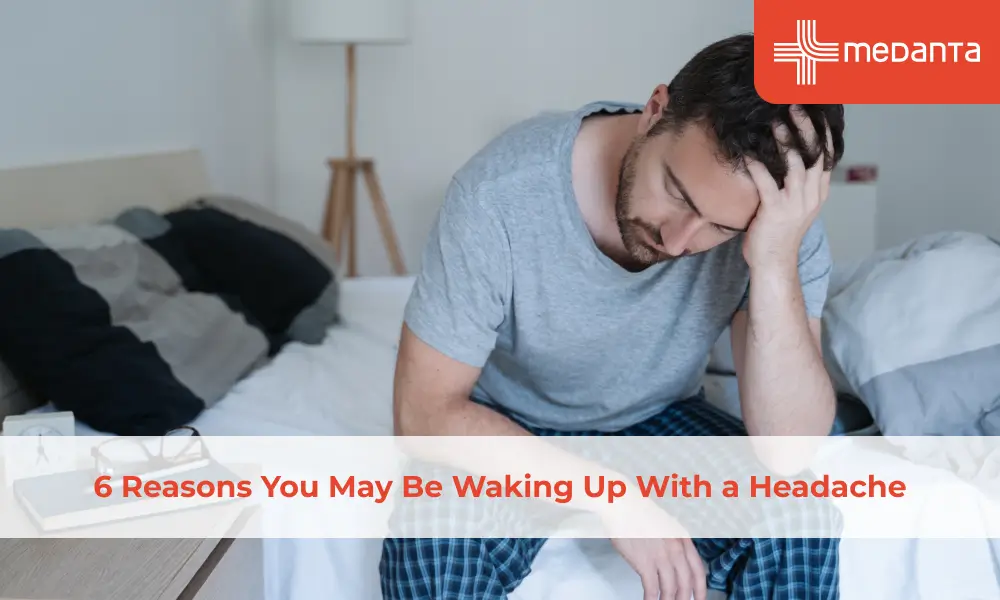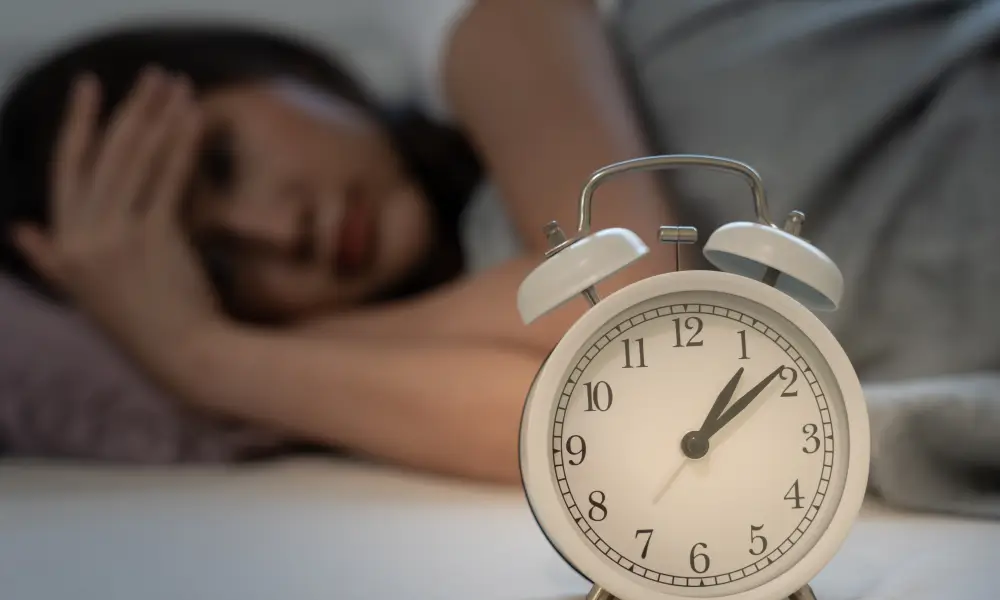6 Reasons You May Be Waking Up With a Headache

TABLE OF CONTENTS
A headache can ruin your morning before you even get out of bed. Most migraine episodes hit hardest in the early morning hours. Research shows that the majority of cluster headache patients felt the pain at the same time each day, usually around 2 a.m.
These morning headaches plague countless people, and some battle them more than 15 days every month. Many people brush off morning headaches as just another fact of life, but several factors explain why it happens. Sleep problems, dehydration, and other triggers can cause these dawn-time pains. Some morning headaches might be temporary and easy to fix, while others could point to serious health issues that need medical attention.
This article will explain to you the unexpected triggers behind the throbbing pain you feel at daybreak. You'll also find practical ways to start your day pain-free.
6 Reasons You May Be Waking Up With a Headache
Pinpointing why you wake up with a headache can be tricky. All the same, getting to the bottom of that morning pain will help you find the right relief.
Sleep Disorders: Sleep apnea is a major trigger of morning headaches. Research shows that many people with this condition wake up with a headache. These "hypoxic headaches" happen because breathing stops multiple times during sleep and your brain doesn't get enough oxygen. Regular snorers have a high chance of morning headaches. Bad sleep from insomnia can also make you wake up with throbbing temples. Sometimes, oversleeping also triggers morning headaches.
Teeth Grinding: Some people who grind their teeth (bruxism) in sleep often experience morning head pain. Your jaw clenching through the night creates tension in nearby muscles and you wake up with dull aches around your temples. The grinding hurts your teeth and makes your jaw sore.
Dehydration: Your body needs water while you sleep. A dehydrated brain temporarily gets smaller and pulls away from your skull, which puts pressure on nearby nerves. This happens more often after drinking alcohol or sleeping in hot rooms.
Headache Disorder: Dawn tends to trigger primary headache conditions. Migraines strike most frequently in the early morning hours. You might also get tension headaches after waking up because of poor sleep position or stress.
Mental Health Condition: People with depression or anxiety get morning headaches twice as often as others. The risk jumps even higher if you have both conditions.
Alcohol: Drinking alcohol can lead to morning headaches because it dehydrates you, makes blood vessels swell, and messes up your sleep cycles. It changes brain chemicals too, which causes withdrawal symptoms as your body works through the alcohol during the night. All of this together makes waking up with a pounding headache more likely.
How to Treat Morning Headaches?
Your morning headache needs a targeted treatment plan based on what's causing the pain.
Medications: Simple over-the-counter pain relievers like aspirin, ibuprofen, and acetaminophen work well for occasional tension headaches. Chronic cases might need stronger prescription medications such as tricyclic antidepressants.
Better sleep habits: You need 7-9 hours of consistent sleep each night to stop future headaches. Your bedroom should be cool, dark, and quiet to help you rest better. On top of that, stay away from screens two hours before bedtime because electronics wake up your brain and mess with your sleep.
Hydration: Good hydration is a vital part of the solution. Your brain tissues shrink when you're dehydrated, which leads to nerve pain when you wake up. Make sure to drink water throughout the day and keep a glass by your bed.
Exercise: Working out regularly (30-50 minutes of moderate exercise 3-5 days a week) reduces migraine attacks' frequency, severity and length - this can work better than standard preventative drugs.
These specific conditions need special care:
Sleep apnea: CPAP machines cut down related headaches
Bruxism: Nighttime mouthguards stop teeth grinding
Anxiety/depression: Talk therapy and relaxation methods help most people
Regular meal times help keep your blood sugar steady, since skipping meals can trigger pain.

When Morning Headaches Need Medical Attention
Home remedies don't always work for morning headaches, and sometimes you need a doctor's help.
See your doctor promptly if:
Your headaches frequently disrupt daily activities
Pain medication becomes necessary more than three times weekly
Morning headaches occur three or more times per week
Pain gets worse over several weeks
Your headache patterns change unexpectedly
Severe pain wakes you during the night
Headaches began after age 65
Regular morning headaches usually don't raise concerns, but you shouldn't ignore frequent or worsening episodes.
Rush to emergency care immediately if your morning headache comes with:
Fever and vomiting
Confusion or personality changes
Stiff neck
Blurred or double vision
Balance problems
These symptoms could point to serious conditions that need urgent treatment.
Medical evaluation is vital for persistent morning pain, especially since doctors suspect secondary headache causes more often than they detect them. Listening to your body's needs isn't overreacting - it's taking care of yourself.
FAQs
Is it normal to wake up with a headache occasionally?
Most people get morning headaches from time to time. Research shows that many people deal with chronic morning headaches. Women tend to get them more than men. The age group most affected is 45-64 years old.
Could my pillow be causing my morning headaches?
Yes! Your pillow's thickness can force your neck into uncomfortable positions. The strain on neck muscles sends pain to your head. A hard pillow creates pressure points on your skull. A too-soft pillow lets your head sink down awkwardly.
Does sleep apnea cause headaches?
About 29% of people with obstructive sleep apnea wake up with headaches. These headaches usually last less than 30 minutes and create pressing pain on both sides of the head.
Can grinding teeth at night give you headaches?
Definitely. Your jaw's tension from teeth grinding (bruxism) spreads to your head. Many people feel dull pain around their temples after waking up.
When should I see a doctor for morning headaches?
You need medical attention if headaches:
Happens several times weekly
Get worse over time
Affect your daily activities
Come with other symptoms like high blood pressure or vision changes






